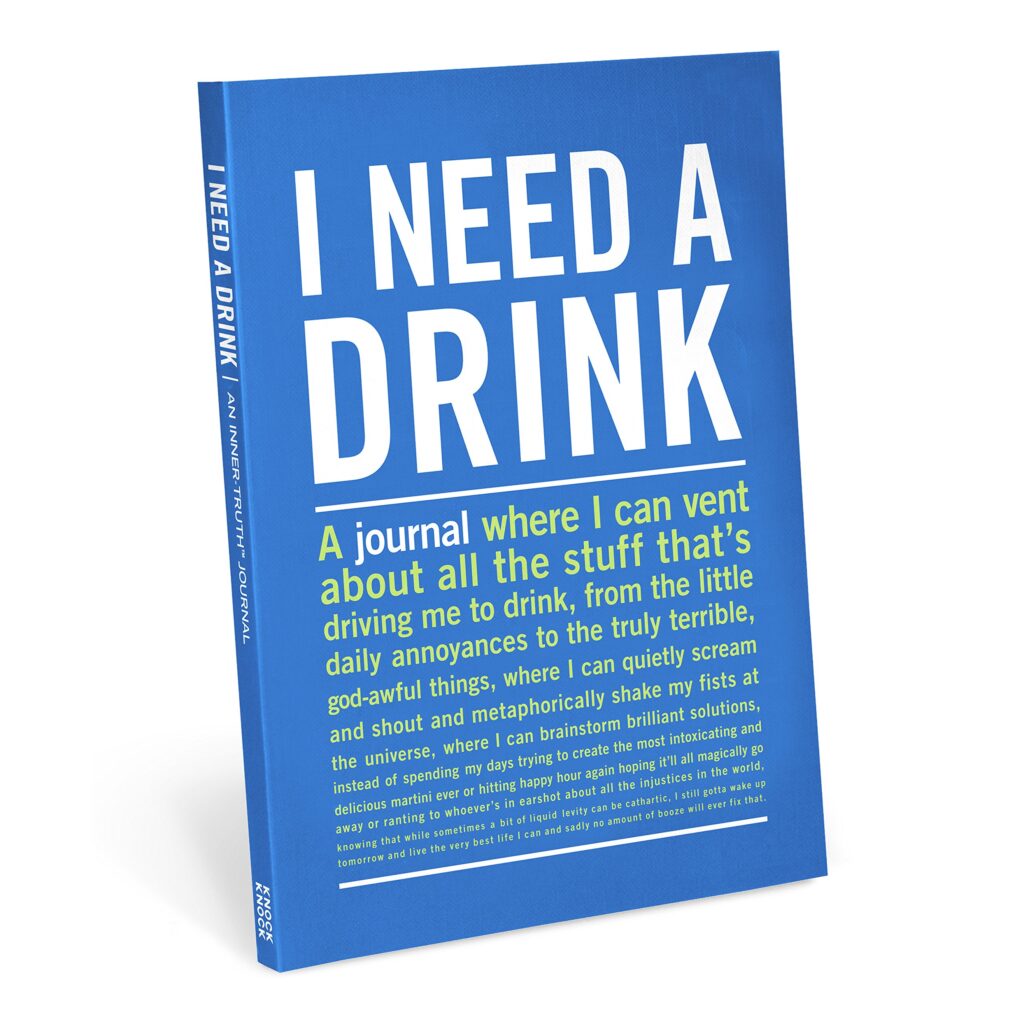
Saying “I need a drink” is a moment to pause and listen to yourself
It’s often meant as a joke, but it can be a warning sign of a drinking problem
The simple sentence “I need a drink” is one of the biggest red flags of alcohol use disorder. It means one of two things: you need a drink to cope with something, or you need a drink because you don’t feel right without it. If you say it, take a pause and think about what you mean with intention and self honesty.
The spectrum of alcohol use disorder goes from use to misuse to abuse. Then it develops into an addiction.
- Use: Casual, recreational, limited use
- Misuse: Use is for the purpose of getting drunk or high
- Abuse: Frequent use in spite of impaired functioning and negative outcomes
- Addiction: Daily use required to feel “normal,” inability to stop, and/or persistent negative outcomes
When you say “I need a drink,” ask yourself what are you really saying. Is it really a joke, or are you only kidding yourself?

Drinking to cope
When you “need a drink” to cope, you’re not just drinking. You’re using. It’s not a social or fun thing or something that pairs well with food. You’re using alcohol as a drug and self medicating to escape life or deal with bad feelings. You’re psychologically and behaviorally entering the spectrum’s danger zone. The more you turn to alcohol to soothe you and deal with problems, the more likely you are to start developing a habitual pattern. Those problems and stresses become your triggers.
Drinking to feel “normal”
When you consistently “need a drink” just to feel “normal,” you’ve reached the far end of the spectrum. You’re not actually normal at all, your brain has changed and your perceptions of what is normal are no longer accurate. Your body has become chemically dependent on the presence of alcohol and you feel bad without it. You’ve acquired the chronic disease of addiction and are going to need medical help to free yourself and learn to manage it into remission.
What if I “want” a drink?
Saying “I want a drink” is different, but isn’t always better than saying I need one. Wanting to have a drink with your meal or with friends isn’t the same thing as craving a drink and obsessing about it until you have it. And then when you have it, you don’t control it and keep drinking because you want more and more.
The addiction cycle identified by neurobiologists is intoxication to withdrawal to anticipation. Anticipation is wanting that next drink, planning for it, and not being satisfied until you have it. People with alcohol use disorder build their lives around their drinking, create opportunities to drink, associate with people who drink the way they do, or enable them to drink they way they want.
Even without physical dependency, addiction is defined by how substances like alcohol affect your life in negative ways and your inability to control your drinking in spite of them. When you want a drink so much that you’re putting other things aside, “want” isn’t the right word. You’re craving that drink.
Be honest with yourself and track your drinking
The thing to explore when you catch yourself saying “I need a drink” is what’s driving you to drink? Are you struggling with work or family or a relationship, does that drink really make it better or numb it for a while? If you need a drink to have fun, or endure something that’s supposed to be fun, is it really fun and something worth giving your time to?
Keep a journal and start logging your drinking, when you do it and how much, and keep track of your triggers. Be honest, it’s only for you. If you catch yourself lying to yourself or rationalizing, you can be sure you’re hurting yourself.
In recovery, people learn that the only thing we control is us. We can’t control other people or situations around us. We can only control how we act and react to them.
The truth you’ll find when you study yourself and why you “need a drink” is that there is absolutely nothing that drives you to drink. You’re the one in the driver’s seat. You’re just not in control, the alcohol is.
People learn in recovery that drinking doesn’t solve problems or help them go away. It’s a way of avoiding problems that keep getting worse, and it creates problems that are even worse.
In identifying triggers through counseling and self reflection, working down into their roots, and learning to manage them, we find there are other ways to cope that are healthy, build resilience, and solve the problems we’ve been running away from. Those triggers that drove you to drink start firing blanks instead of bullets. And you’ve become bulletproof to whatever comes along because you now have the tools to deal with them.

Do you need help managing your drinking?

As they monitor their drinking and start to see issues or get concerns, almost all people prefer talking one-on-one with a counselor to explore what’s happening with a non-judgmental and experienced professional. You can set up a confidential telehealth conversation with one of our counselors who will listen to your story and give you an honest, objective assessment.
Early intervention with problem drinking on the lower end of the alcohol use disorder spectrum can prevent all kinds of bad things from happening. It’s a safe space to really open up and explore the behaviors and patterns and look for root causes. You can stop “needing a drink” to deal with your stresses and problems or to escape from the world. You’ll gain tools and develop techniques to build a healthier life and manage alcohol appropriately.
If it’s obvious that you “need a drink” just to get by and your life is suffering, we can get right to work. We’ll put the brakes on alcohol and get you on the road to recovery where nothing drives you to drink. When you join Affect, you’ll get a care team of experienced advocates, licensed counselors, and medical professionals who will guide and support you through our integrated digital treatment program.
What kind of life would it be if you never again said “I need a drink” in exasperation, exhaustion, frustration, or desperation?
If your life is driving you to drink, it’s time to change your life. We’ve helped thousands of people find hope, believe in themselves again, discover their power to change, and build the kinds of lives they love living.
They’re all different, but they all did it the same way. Instead of saying they needed a drink, they realized what they really needed was help, and they asked for it.
